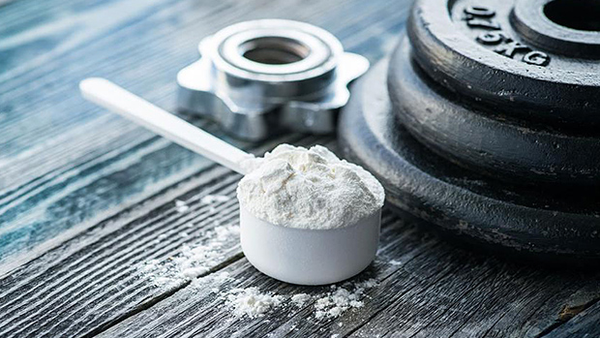

Get to Know Creatine Supplements
What is Creatine?
Creatine itself is the most widely used performance nutrient in the world. It’s a molecule produced in the body that stores energy as phosphate groups in the form of phosphocreatine.
Roughly 95% of your body’s creatine is stored in muscles in the form of phosphocreatine. The other 5% is found in your brain, liver and kidneys. This means huge energy stores for you and your muscles all the way at the cellular level, which means building stronger muscles.
What does it do?
During periods of stress, like a workout, phosphocreatine releases its energy. This is what causes strength to increase. Creatine acts as the catalyst for providing your body with what it needs to stay strong during a workout.
Creatine is essential in the process of sending energy directly to muscles. It is naturally produced by the body in small amounts and has been shown to be ergogenic (performance-enhancing) when taken in supplement form.
Healthline explained that this helps you gain muscle in the following ways:
- Boosted workload
- Improved cell signaling
- Elevated anabolic hormones (muscle-building hormones)
- Increased cell hydration
- Reduced protein breakdown (body preserves muscle mass)
- Lower myostatin levels (a chemical that tells your body to inhibit muscle growth)
The other cool part is that creatine is great for your brain. Studies show it may improve a variety of neurological conditions like Alzheimer’s, Parkinson’s, Huntington’s and overall memory and brain function.
What form should you take?
The most researched form of creatine is creatine monohydrate. It’s supported by hundreds of studies over the course of decades. When it comes to creatine monohydrate, the best form would be the purest and most soluble.
When creatine was first being used as a supplement, it was sold in a form with very low solubility (this is why some people get side effects like bloating and water retention). Because of this, manufacturers got smart and created “Micronized” creatine monohydrate. Micronized creatine monohydrate is 5x more soluble than regular creatine monohydrate, but is still not 100% soluble, leaving room for nasty side effects.
In November of 2015, supplement manufacture, Gains In Bulk, was the first company to bring 100% soluble “Instantized Creatine Monohydrate” to the market. Most BCAA supplements you can buy are already instantized, but because of the manufacturing costs of creatine, the instantized form is still not widely available and most supplement companies either still use the basic form of creatine monohydrate, or micronized.
Beyond solubility, a very important factor when purchasing creatine is making sure it’s pure. A lot of products contain fillers and additives. Plus, during the process of making creatine, it is easy for many byproducts like creatinine to be present in the final powder. Make sure the company you get your creatine from uses third-party testing and provides “Certificates of Analysis” with your order so you can see the exact breakdown and purity of your creatine.
Dosing
Now, when your body makes its own creatine, it’s ready to be put to use at a moment’s notice. When you supplement with creatine monohydrate, it has to be dissolved in water first. Your body has to grow familiar with this nutrient as a supplement, so there’s a loading phase. This can lead to a rapid increase in creatine storage (which is what you want).
Studies show, you should load with 20 grams per day for 5-7 days. Make sure to space it out into four 5-gram servings throughout the day.
Following the loading period, take 3–5 grams per day to maintain high levels within your muscles. As there is no benefit to cycling creatine, you can stick with this dosage for a long time.
If you choose not to do the loading phase, you can simply consume 3–5 grams per day. However, it may take up to a month to gain maximum benefits. Here’s a post on the best creatine-loading method we could find.
What side effects can you expect?
If your creatine is able to be absorbed in the body and has no chemical byproducts, surprisingly, and to all our delight: none. One of the most comprehensive studies measured 52 blood markers and observed no adverse effects following 21 months of supplementing
Where do I get the best creatine supplements?
You can shop all over the internet but we at Iron Man Magazine screen every last supplement company that advertises with us for honesty, purity, potency and effectiveness. Check out our latest issue (print or digital) for our top picks.
For Further Reading/Researching
Does It Matter When You Take Creatine?
The Creatine-Hormone Connection






















You must be logged in to post a comment Login